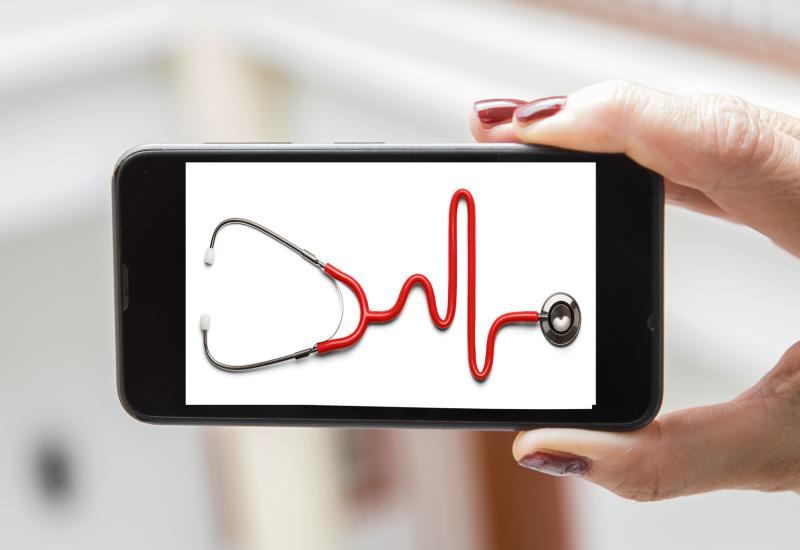Mobile health interventions improve management of chronic CVDs




 New research says a health monitor installed in smartphones will encourage patients to closely work with health providers for better management.
New research says a health monitor installed in smartphones will encourage patients to closely work with health providers for better management.Mobile phone-based interventions (MPIs) may be a valuable supplementary component of management strategies for chronic cardiovascular diseases (CVDs), reports a systematic review and meta-analysis presented at the Digital 2020 Congress of the European Society of Cardiology (ESC).
Researchers systematically searched seven electronic databases, selecting only for randomized controlled trials (RCTs) that evaluated the efficacy of MPIs on CVD outcomes such as mortality, blood pressure, body mass index, and hospitalizations. Studies included enrolled patients diagnosed with acute coronary syndrome, heart failure, or hypertension.
Twenty-six RCTs were deemed eligible for inclusion in the review, yielding a pooled sample size of 6,713 patients. Half of the included studies looked at text messaging interventions, 10 assessed telemonitoring interventions, and three focused on smartphone applications. Only 12 trials were suitable for quantitative meta-analysis. [Indranatna, P, et al, ESC 2020]
The pooled study sample included 1,683 patients with heart failure, who saw significant improvements in outcomes following MPIs. All-cause hospital admissions at 6 months, for example, were significantly lower in those who received the mobile health approach (31 percent vs 36 percent; odds ratio [OR], 0.77, 95 percent confidence interval [CI], 0.62–0.97; p=0.03).
The same was true for heart failure hospitalizations (14.0 percent vs 18.5 percent; OR, 0.69, 95 percent CI, 0.48–0.98; p=0.04), but no significant effect was reported for mortality (p=0.45). Likewise, hypertensive patients derived some significant benefit from MPIs, with a significantly lower systolic blood pressure after intervention (difference, –4.3 mm Hg, 95 percent CI, –7.8 to –0.78; p=0.02).
Body mass index was unaffected by MPIs at least 6 months after intervention (mean difference, –0.46, 95 percent CI, –1.44 to 0.52; p=0.36).
An important indicator of clinical outcomes that MPIs could potentially play a large role in is medication compliance. This was assessed as an endpoint in four studies that enrolled patients with ischaemic heart disease. These studies primarily employed short message service (SMS) reminders, and the sample sizes ranged from 90 to 499 participants.
While all four trials reported a significant effect in favour of the MPI across follow-up durations ranging from 1–12 months, meta-analysis was not possible due to the variability in how compliance was quantified.
“CVD remains the leading cause of death in the world. Mobile phones have become ubiquitous in most developed societies,” the researchers said. “Smartphone applications, telemonitoring, and clinician-driven SMS allow for novel methods in managing chronic cardiovascular conditions such as ischaemic heart disease, heart failure, and hypertension.”
The present meta-analysis adds to the growing number of studies that highlight the utility of mobile health interventions in the management of CVD. A 2018 review, for instance, found that smartphones could improve access to cardiac rehabilitation programmes without compromising on quality. [BMC Cariovasc Disord 2018;18:25]
Further studies, with better designs and more uniform measurement methods, are needed to more accurately describe the role of mobile health technologies in the care of CVD patients, according to the researchers.